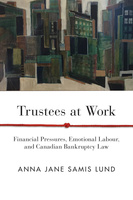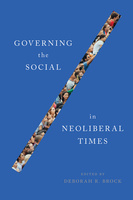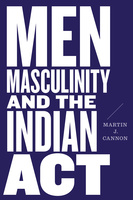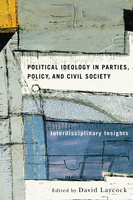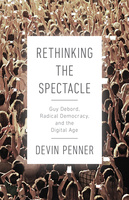Changing Neighbourhoods
Social and Spatial Polarization in Canadian Cities
Changing Neighbourhoods offers revealing insights into the way that Canadian cities have grown increasingly unequal and polarized since 1980, identifying the causal factors driving neighbourhood change and their troubling implications.
The Motivation to Vote
Explaining Electoral Participation
An original, parsimonious, and elegant explanation of why we vote or abstain in elections.
Trustees at Work
Financial Pressures, Emotional Labour, and Canadian Bankruptcy Law
Trustees at Work explores what is means to be considered a deserving debtor in under contemporary Canadian personal bankruptcy law.
Queering Representation
LGBTQ People and Electoral Politics in Canada
Queering Representation explores what happens when LGBTQ people move out of the closet and into the political arena.
Medicine and Morality
Crises in the History of a Profession
The first historical study of morality and science in Canadian medicine, Medicine and Morality shows how moments of doubt in doctors’ impartiality resulted in changes to how medicine was done, and even to the very definition of medical practice itself.
The Impossible Clinic
A Critical Sociology of Evidence-Based Medicine
The aims of evidence-based medicine cannot be reconciled with its outcomes, yet this impossible practice persists at the intersection of professional medical regulation and liberal governance strategies.
In the Spirit of ’68
Youth Culture, the New Left, and the Reimagining of Acadia
In the Spirit of ’68 tells the story of how a unique blend of local circumstance and global influence transformed Acadian New Brunswick’s youth culture, spawning one of the most influential revolutionary student movements in Canada.
Governing the Social in Neoliberal Times
This accessible but theoretically sophisticated volume reveals how neoliberalism – as both an economic project and a broader political approach – has come to govern our daily lives, our understanding of the world we live in, and even how we think about ourselves.
Men, Masculinity, and the Indian Act
Men, Masculinity, and the Indian Act reverses conventional thinking to argue that the sexism directed at women within the act in fact undermines the well-being of all Indigenous people, proposing that Indigenous nationhood cannot be realized or reinvigorated until this broader injustice is understood.
Political Ideology in Parties, Policy, and Civil Society
Interdisciplinary Insights
This important study demonstrates that varied disciplinary approaches can illuminate the reach and impact of political ideologies on both politics and society.
Moments of Crisis
Religion and National Identity in Québec
Wide-ranging and theoretically sophisticated, Moments of Crisis offers a groundbreaking explanation for why religion continues to be implicated in national identity crises in Québec.
Identities and Interests
Race, Ethnicity, and Affinity Voting
Identities and Interests examines the electoral behaviour of racialized Canadians: how they self-identify, why they support minority candidates, and what these patterns mean for Canadian politics.
Rethinking the Spectacle
Guy Debord, Radical Democracy, and the Digital Age
Drawing on radical democratic theory and the ideas of political theorist Guy Debord, Rethinking the Spectacle examines the tension between spectacles and political agency in our digital society.
Thinking Differently about HIV/AIDS
Contributions from Critical Social Science
Almost four decades after the discovery of HIV/AIDS, Thinking Differently about HIV/AIDS: Contributions from Critical Social Science demonstrates the essential role of critical social science in helping us understand the complexity of the epidemic and develop appropriate solutions.
Putting Family First
Migration and Integration in Canada
Putting Family First challenges the conventional view of settlement and integration as an individual process driven largely by the labour market, placing the family at the centre of the successful immigrant experience.



